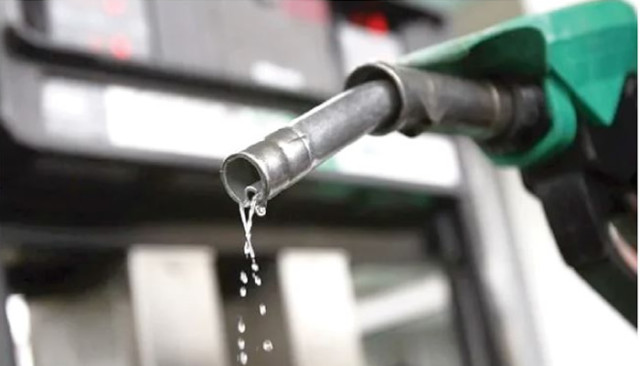The Depot and Petroleum Products Marketers Association of Nigeria (DAPPMAN) has announced that its members can exclusively purchase Premium Motor Spirit (petrol) from the Dangote Petroleum Refinery, as the Nigerian National Petroleum Company Limited's refineries are unable to produce petrol effectively and are only generating naphtha.
DAPPMAN’s Executive Secretary, Olufemi Adewole, shared this information during a conversation with a journalist on Sunday.
He emphasized that DAPPMAN members are prepared to obtain petroleum products from the Dangote refinery, highlighted as the country's sole effective petrol production facility.
As a result, he noted that marketers will turn to importing fuel only if local sourcing fails.
He indicated that the Dangote refinery is not currently positioned to sell premium motor spirit in bulk to his members.
Adewole made it clear that they won't approach the Port Harcourt or Warri refineries for petrol since these locations are only yielding naphtha and not adequate petrol supplies.
"The NNPC refineries, including the renewed Port Harcourt and Warri facilities, are still not effectively producing PMS; they are generating naphtha. Our members will refrain from engaging with them at this moment.
However, Dangote refinery is our source for the product, and we are eager to collaborate and purchase from them. If we don’t succeed in sourcing from Dangote refinery, the PIA permits us to import, which will be our fallback," Adewole stated.
He insisted on increasing domestic production of PMS to enhance access for marketers.
He maintained that Depot owners prefer not to import; rather, they wish to procure and supply products locally, though current options are limited.
"Domestic production needs to increase to provide us with more avenues for sourcing the product. It's not our primary intent to import; we prefer local purchases and selling to Nigerians, but our options are constrained," he clarified.
However, he pointed out that the Dangote refinery tends to prefer a selective approach, working only with a few marketers and leaning towards gantry supply. As depot owners, Adewole said their association favors bulk purchasing of up to 25 metric tonnes.
He stressed that if they are permitted to load their vessels when the portal is operational, it would simplify their dealings with the Dangote refinery.
According to Adewole, DAPPMAN members have depots across Nigeria and are willing to acquire PMS and diesel from the Dangote refinery. However, there are uncertainties regarding the refinery's willingness to sell to them.
He added that discussions with Dangote are ongoing, with members seeking favorable pricing without being taken advantage of. "We have depots positioned across the country, especially along the coasts, ready to source from Dangote. But the question remains: is Dangote willing to cooperate? We have held multiple high-level meetings with Dangote Refinery’s management. Conversations are still in progress, and we seek a scenario where we can procure from the refinery at the best possible price without being shortchanged," he explained.
Adewole remarked that DAPPMAN's goal is to provide quality products to customers nationwide at the best price, regardless of the source of these products. He stated, "We will source the product wherever we can.
The PIA allows for importation, and when people inquire why we’re importing instead of supporting local refineries, the fact is, we wish to support local sources but it depends on the local refinery's willingness to supply us. If we procure cargos at lower rates, we can sell to Nigerians for less," he stated.
He added that DAPPMAN takes pride in the operational status of the Dangote refinery and aims to collaborate without incurring financial losses. "We take pride in having the Dangote refinery operational. We want to partner with Dangote, but we won’t sustain losses since ultimately, we are in business," he remarked.
In November 2024, NNPC announced that the Port Harcourt refinery, with a capacity of 60,000 barrels per day, had resumed operations after being inactive for years. They reported that the refurbished Port Harcourt refinery was currently functioning at 70% of its capacity.
They also stated that the primary products from the refinery include diesel and Pour Fuel Oil, with significant daily throughput of these products, alongside petrol and kerosene.
The NNPC insisted on the actual outputs of the refinery in response to claims that it was not producing fuel effectively. They confirmed that the Port Harcourt refinery was running at 70% of its capacity and aims to reach 90% soon. Additionally, they stated the daily outputs included premium motor spirit, kerosene, automotive gas oil, low pour fuel oil, and liquefied petroleum gas.
Soneye, the NNPC spokesperson, highlighted that the Port Harcourt refinery was integrating blending components from Indorama Petrochemicals to meet gasoline specifications, noting that blending is a common practice in global refinery operations.
He indicated that the NNPC had made significant advancements in refurbishing the Port Harcourt Refinery and anticipated that it would commence operations "swiftly" without prior announcements.
By April, a report from the Nigerian Midstream and Downstream Petroleum Regulatory Authority indicated that the Port Harcourt refinery was operating below 40% capacity.
Furthermore, it was reported that the Warri Refining and Petrochemical Company remained inactive since January 25, 2025, due to safety concerns regarding its Crude Distillation Unit Main Heater, and that the leadership of the Port Harcourt, Warri, and Kaduna refineries had been replaced by the new NNPC board.
Soneye has yet to respond to inquiries from our correspondent regarding these developments.




















